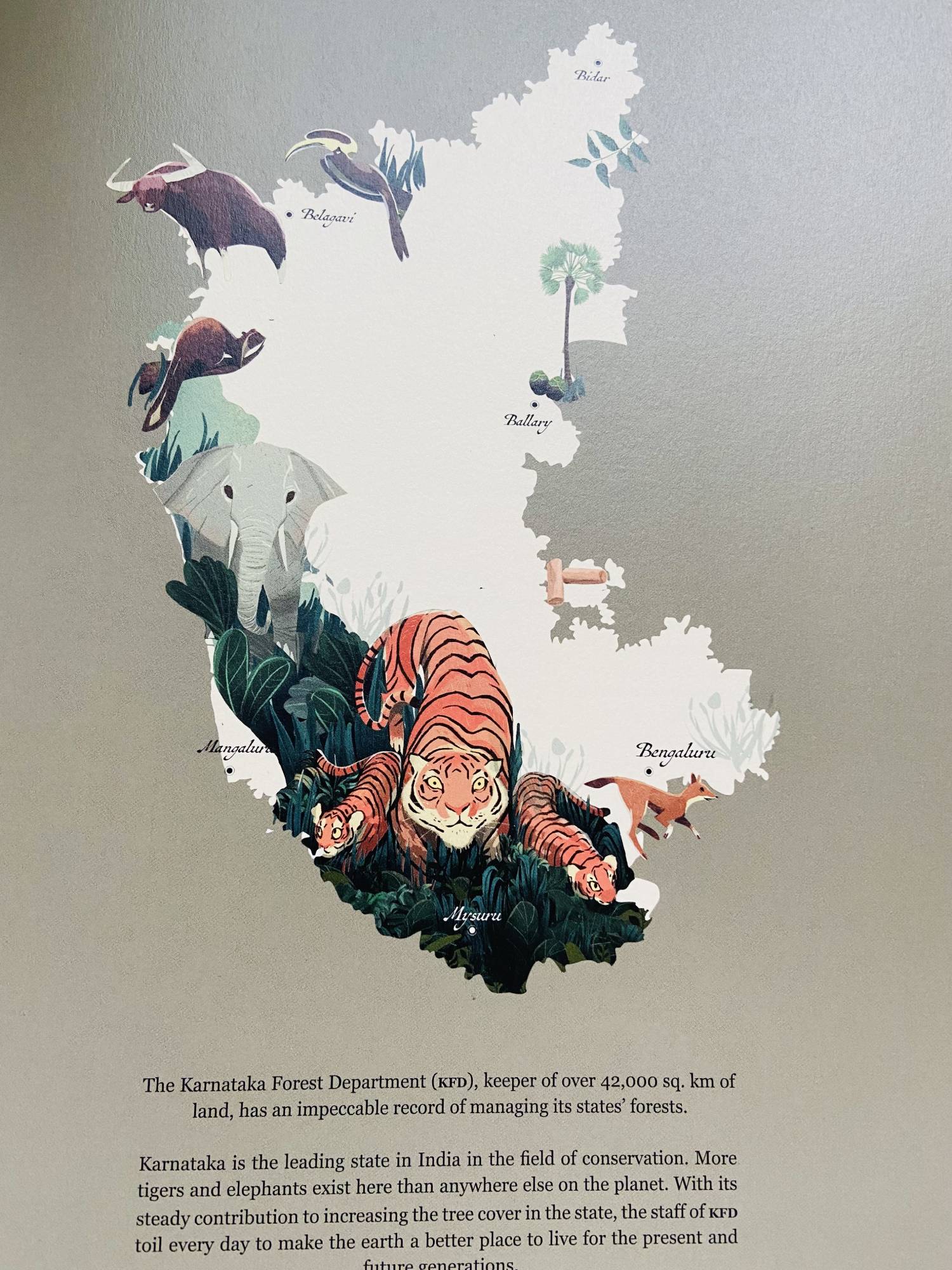This World Environment Day, I would like readers to shift their focus to the sentinels who guard our forest eco-systems. It could be the farmer staying on the fringes of a forest or Padmashree awardee Saalumarada Thimakka. India’s rich biodiversity makes it a land of plenty. Rivers originate from this thriving eco-system, irrigating the hinterland, and plants and animals flourish in these forests. The Western Ghats, a UNESCO World Heritage Site, passes through all the states on the western peninsula, and is host to millions of organisms. It is also the birthplace of many rivers.
With population explosion and development came the problem of man-animal conflict. This has resulted in widespread poaching, felling of trees, smuggling and encroachment of forests. Many of our young readers will be fascinated to know the story of Veerappan, a smuggler who once lived and roamed freely in the thick forests of Tamil Nadu and Karnataka. The strife that went on for decades between poachers like him and the forest officers and, eventually, the police (a Special Task Force was constituted to nab him) resulted in widespread devastation, loss of lives. Families were torn apart and the forests boomed with the sound of gunfire. The last decade has seen a massive change sweep through our forests — calm and tranquility now reign and there is a renewed effort toward conservation and eco-tourism.
Leading this change are the officers of the Indian Forest Services. With an abiding love for wildlife, nature, photography and conservation, they have reclaimed the forests from the clutches of devastation. Many millennials follow young IFS officers on Twitter and Instagram, who share awe-inspiring images from deep in the jungles and populate their news feed with marvelous stories. However, before these young IFS officers took to social media with their passion and determination to make their work matter, their seniors had inspired a whole generation of staff – often recruiting them from the villages in the forest regions to become the sentinels of the forests.
The Karnataka Forest Department recently published a stunning coffee table book that documents the forests in the State. “Dedicated to the martyrs, retired and all the frontline soldiers of the Karnataka Forest Department who toil continuously to preserve and protect our natural heritage,” the book explores the diverse vegetation of the forests through photographs that are a visual treat. The book, which is now available in the IIMB library, is a must read for those who wish to know why Karnataka is a prosperous state – bestowed with such natural reserves. From evergreen, semi-evergreen forests to moist deciduous forests, “the forest types that one encounters in Karnataka are microcosms of amazing plant and animal life,” writes Vijay Mohan Raj, IFS officer, who is the main proponent of this book.
The book has many interesting facts, such as how the Karnataka Tree Preservation Act, was probably the first in the country and in the world. The Act requires Government’s permission for every tree that is felled, even on private lands. The State is also a pioneer for having a People’s Biodiversity Register that not only documents its biodiversity but also ensures rightful use and protection from exploitation of forest resources from industrial houses. It is well-known that the State has successfully increased its tiger population and used technology to track and monitor wildlife. The Department has partnered with ISRO for remote monitoring of the forests and pioneered a smart boundary system KADOO where the forest boundary pillars are embedded with a smart chip, providing real-time alerts to forest guards.
The global call for climate action and the involvement of the millennials in ecological issues can have impact and effectiveness if the ecosystem and forest management techniques are understood in greater detail. These men have been tirelessly working to prevent forest fires, keep out poachers and stop encroachments, while at the same time equipping themselves to manage, enhance and protect the ecosystem with a wide variety of programs. The need of the hour, as we celebrate World Environment Day, is to join hands with them and increase our forest cover. To quote one of the many meaningful quotes in the coffee table book, ‘Time spent among the trees is never time wasted’ (Katrina Mayer).
 Pic credit: Forests, Karnataka Forest Department
Pic credit: Forests, Karnataka Forest Department

Dr Deepti Ganapathy teaches Management Communication at IIM Bangalore.

Article very inspiring
A great tribute to the saviours and the sentinels of the forest resources on the occasion of the World Environment Day.
As a teacher I would love to share this article with my students.
I salute the ‘The Unsung Guardians’
The article is very interesting and timely. I did not know about Karnataka Preservation Act. It is heartening to note we whould take the permission of authorities even to cut the trees on private land. If this law is strictly implemented smuggling of trees will stop.
Yes, Karnataka is proud of its forest wealth. It should be prserved for the sake of next generations.That will be a tribute we will be giving to Mr Sundarlal Bahuguna who had visited western ghats of Karnataka several times.
Meaningful and timely article which draws one’s attention back to the Chipko movement, the bloody massacre of elephants by Veerappan and gang. The Preservation Act should never be allowed to get diluted, what with the land mafia constantly on the look out for more land to acquire. Work being done by the previous and current generation of IFS and their teams is heartening. Lastly, the author’s obvious passion for the forest comes through so well in these words!